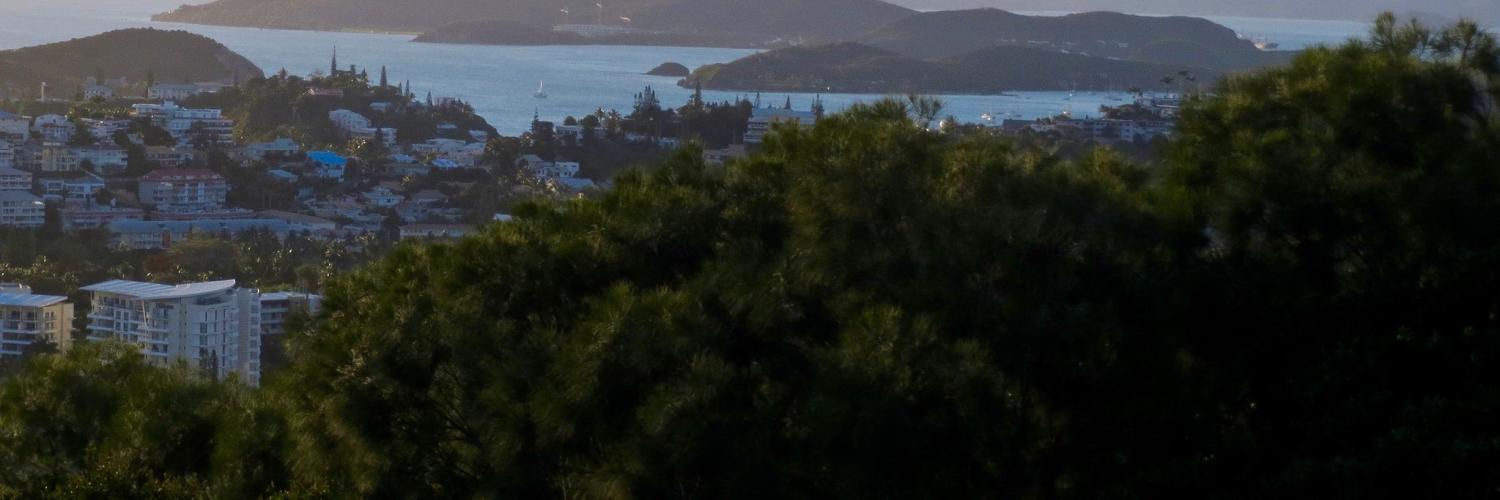The results of the first round of the French presidential elections create new uncertainties for the French Pacific, particularly for Australia’s close neighbour New Caledonia, which is facing a critical independence referendum by the end of 2018.
As in past presidential elections, in the two largest French Pacific territories of New Caledonia and French Polynesia, participation rates were low, and those who did vote favoured the mainstream conservative candidate (Fillon), with the far-right Le Pen a close second, and the centre-left Macron a trailing third. This is consistent with historical patterns. Territorians see local issues and personalities as more relevant to them, and many shun national elections. Moreover, large populations in each territory support greater autonomy or even independence from France, and therefore don’t vote in presidential elections.
So those who do vote tend to vote conservative. Thus, while nationally Macron won 24.01% and Le Pen 21.3%, with voter turnout of 77.77%; French Polynesia voted Fillon 35.28%, Le Pen 32.54% and Macron 14.7% with 38.94% turnout. In New Caledonia the result was Fillon 31.13%, Le Pen 29.09% and Macron 12.75% with 48.14% turnout.
Tiny Wallis and Futuna more closely reflected the national trend. As usual there was a higher participation rate (63.93%) than in the other territories, mainly arising from their dependence on jobs in the larger territory of New Caledonia, but turnout was significantly down on 2012 (72.1%). They voted socialist in 2012, and this time voted for Macron (30.48%), Fillon 28.53% and Hamon (25.22%) with Le Pen running last at 7.11%.
Both Macron and Le Pen have detailed policies for the French Overseas territories aimed at retaining sovereignty and strengthening 'continuity' with mainland France through education, health and employment provisions. But Le Pen couches her policy strongly in terms of retaining and protecting sovereignty and borders, and the strategic value to France accruing from the overseas territories.
It is in New Caledonia that the effect of uncertainty is greatest, given that the territory is preparing for the final independence referendum in November 2018, a vote with implications for French Polynesia, which is watching closely.
Both Macron and Le Pen claim to support the Noumea Accord and its prescribed referendum process. But neither have a proven record nor party structures that can deliver a majority in the National Assembly elections to be held 11 and 18 June. So there is likely to be a term of 'cohabitation', with the French President heading a party different to that of the Assembly majority. Circumstances are certainly different now, but it’s worth remembering that in the past, such a situation has been detrimental to advancing sensitive issues relating to New Caledonia, especially the cohabitation period from 1986, with disastrous results leading to a massacre during the civil war in 1988.
Macron is an unknown factor, has never visited the French Pacific territories, and has significant domestic priorities. On the other hand he sent a representative to Noumea earlier this year and appointed a local representative. He has also kept judiciously quiet about whether or not New Caledonia should remain with France.
Le Pen’s more nationalist stance, and the fact that she will appoint a Minister for the Overseas Territories answerable directly to her as President, point to a generally more resistant approach to giving greater autonomy to the Pacific territories. Her references to the self-determination referendum begin with a statement that 'maintaining New Caledonia within France is the choice New Caledonians must make'. A Le Pen Presidency, with its sharpened nationalist rhetoric, risks bolstering the confidence of the local pro-France parties and hardening their stance on referendum issues, with consequent heightened tensions among pro-independence groups.
Local party reactions have been varied but tend towards Macron. Leaders of the leading pro-France party Calédonie Ensemble (Philippe Gomès) and the oldest pro-independence party Union Calédonienne (Daniel Goa) alike have said they will vote for Macron, but that their parties will not take a formal position about advising supporters which way they should vote. Another main pro-independence party, Palika, has urged supporters to vote instead of abstaining, and to vote for Macron simply to block Le Pen. Another leader of a smaller pro-France party (Pierre Frogier) has simply sidestepped the issue, saying neither candidate has close familiarity with the founding of the Noumea Accord and therefore New Caledonians should opt out altogether and wait for legislative elections in June to decide the composition of the National Assembly. All of these old hands are well aware of the risks of 'cohabitation' to progress in defining a new future for New Caledonia over the next eighteen months.

